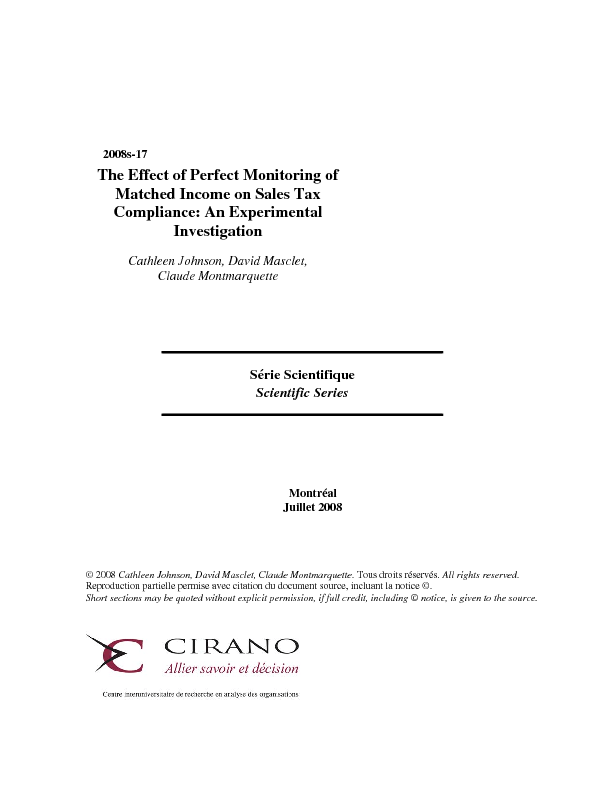The Effect of Perfect Monitoring of Matched Income on Sales Tax Compliance: An Experimental Investigation
Noncompliance is a quantitatively important phenomenon that affects significantly revenue source for state governments. This phenomenon raises challenging questions about the determinants of tax reporting and also about the appropriate design of a tax system: how many resources should be devoted to auditing? This paper provides specific empirical insights using an experimental approach to measure the effects of systematic sales tax monitoring and the determinants of sales tax compliance. The results indicate that if perfect monitoring is instituted without other complementary policies, an increase in tax revenues is not the likely outcome. A successful policy aiming at reducing fiscal fraud might be a difficult task, once people have decided their equilibrium level of tax compliance. The reference-dependent effect observed in the data suggests that individuals will try to recover their losses following any policy changes even if it means taking more risks.
[ - ]




